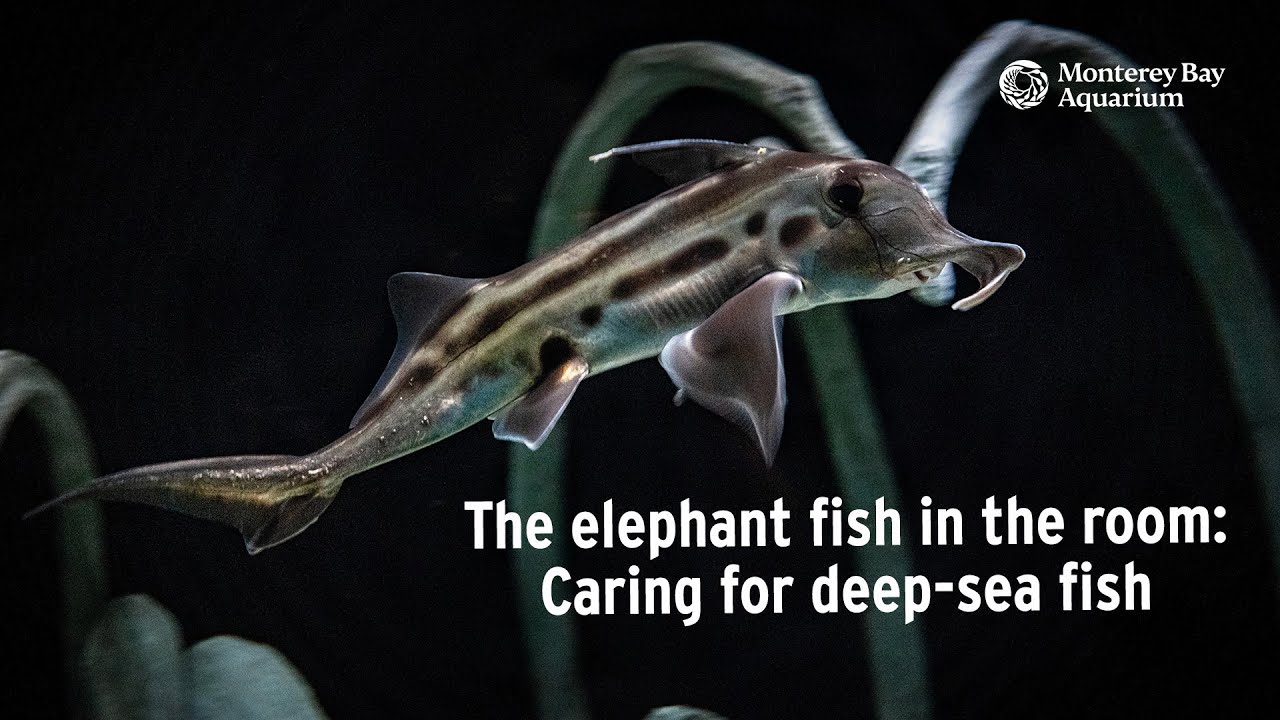- Understanding the biology and ecology of deep-sea elephant fish and its conservation significance.
- Insights into the role of aquarists like Senior Aquarist Dalton in managing deep-sea species in captivity.
- The challenges of maintaining suitable conditions for deep-sea fish in aquariums.
- Technological advancements aiding in the welfare and research of deep-sea fish.
- Educational opportunities and conservation efforts inspired by showcasing deep-sea species in aquariums.
Elephant fish inhabit the deep sea, a region as captivating as it is challenging. Their biology and ecological role are crucial, reflecting adaptation to extreme conditions far removed from the surface world. Elephant fish, like others in the Chimaeridae family, boast distinctive features including elongated bodies and large pectoral fins, which facilitate precise navigation in high-pressure, dark environments. Biologically, they are equipped with electroreception capabilities, allowing them to detect subtle electrical fields generated by prey within their surroundings. This insight into their predation strategies opens up discussions on evolutionary biology and niche specialization.
Deep-sea environments are characterized by immense pressure, low temperatures, and limited light, offering a glimpse into life’s adaptability. Species like the elephant fish highlight the necessity for conservation as they are sensitive to environmental changes. Their slow reproduction rates and specific habitat requirements make them vulnerable to overfishing and habitat degradation. Conservation efforts are thus vitally important to sustain these unique species, which are integral to the deep-sea food web. Protecting these environments ensures the health of oceanic ecosystems, which have profound impacts on global biodiversity and human life.
In managed environments like aquariums, the role of aquarists becomes paramount. Professionals such as Senior Aquarist Dalton dedicate themselves to the understanding and upkeep of these species. Their expertise not only involves biological care but also extends to environmental replication within tanks. Aquarists work tirelessly to recreate the high-pressure, low-temperature habitats that deep-sea species require. This task is challenging due to the precise conditions necessary for their well-being and the limited knowledge historically available about the deep-sea biome. Dalton and his peers are also tasked with continuous observation and modification of care protocols, ensuring the captive environment supports the health and longevity of these fish.
Aquariums are uniquely positioned to face significant challenges in hosting deep-sea fauna like the elephant fish. Ambient conditions in deep-sea tanks must precisely mimic natural habitats, which vary across pressure, temperature, and acidity. These parameters require sophisticated technology and continuous monitoring, often involving custom-built or modified equipment. Towards maintaining such environments, aquariums employ advanced filtration systems to purify and stabilize marine water quality essential for the inhabitants. Replicating the absence of light intrinsic to a deep-sea habitat involves careful design of lighting systems that minimize stress on the organisms.
Advancements in aquarium technology have greatly improved the ability to study and maintain deep-sea creatures. Innovations like pressure-retention tanks allow aquarists to exhibit fish like the elephant fish under conditions matching their natural habitats, providing avenues for detailed research and public education. Understanding these species better positions researchers to contribute meaningful data to global conservation efforts. Efforts to engage the public in conservation activities can be significantly bolstered through the live display of such unique species, as engagement sparks curiosity and support for their protection.
Hosting deep-sea species presents unique educational opportunities. Aquariums serve as a bridge, connecting the public to the wonders of the deep ocean, often a remote and inaccessible area of the natural world. By displaying elephant fish, aquariums draw attention to the importance of marine conservation and biodiversity. Educational programs and exhibits curated around these living displays foster greater understanding and appreciation for lesser-known species. These efforts cultivate a conservation-minded public, encouraging actions that support ocean health.
In conclusion, the conservation and exhibition of elephant fish within aquariums underscore the intricate balance between environmental stewardship and the fascinating study of deep-sea life. The dedication of aquarists like Dalton provides a window into the complexities of replicating deep marine environments, safeguarding species, and providing educational insight into profound natural world processes. Efforts to conserve and exhibit these magnificent creatures reflect a broader commitment to marine life conservation and the advancement of scientific understanding, spurring continued exploration and respect for the Earth’s aquatic frontiers.
*****
Source Description
Dive a little deeper into a day in the life of Senior Aquarist Dalton Richardson as he takes care of our elephant fish (Callorhinchus milii) in the Whalefall Community exhibit. Ensuring the well-being of these unique deep-sea dwellers is Dalton’s top priority.
Learn more about caring for elephant fish at the Aquarium: https://www.montereybayaquarium.org/stories/elephant-fish-in-the-room
Spot the elephant fish on our live Spider Crab Cam: https://www.youtube.com/watch?v=AJGXyJONEoA
____
Whale hello there! We hope you liked this video. Subscribe to our channel for more from the Monterey Bay and our mission to inspire conservation of the ocean:
https://www.youtube.com/subscription_center?add_user=montereybayaquarium
We’re on Facebook: https://www.facebook.com/montereybayaquarium
And Instagram! https://www.instagram.com/montereybayaquarium
And Tumblr! https://www.tumblr.com/blog/montereybayaquarium
And Twitch! https://www.twitch.tv/montereyaq
And TikTok! https://www.tiktok.com/@montereyaq
And Discord! https://discord.gg/montereybayaquarium
And subscribe to our emails here: https://montereybayaquarium.org/subscribe


